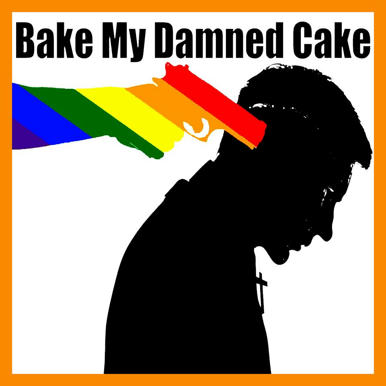The Supreme Court decision legalizing same-sex marriage, President Obama's wrenching eulogy in Charleston, and a Census Bureau report that kids of color for the first time now make up a majority of America's under-5 population all arrived within one indelible 24-hour period late last week.A great piece.
Each event sent the same unmistakable message: The demographic and cultural change recasting America is only accelerating. Against that backdrop, the most timely question this July 4 may be whether Americans believe we are still capable of achieving the soaring standard of unity celebrated in the nation's founding motto: e pluribus unum—out of many, one.
It was undoubtedly easier to embrace that vision when the many were more alike than not. For most of our history, most Americans have been white Protestants who ended their formal education before obtaining a college degree, and then married as adults. Under that broad umbrella many differences persisted. But even into the late 20th century, it would not have been unreasonable to say those characteristics identified a "typical American."
Like a river cutting through rock, currents of cultural, demographic, and social change have eroded those pillars of American identity over the past generation. On every front, America is moving from a single common experience to a panorama of alternative experiences.
Consider religion. As recently as the early 1990s, about 60 percent of Americans, a solid majority, identified as Protestants. But surveys by Gallup and the Pew Research Center indicate that sometime around 2007, Protestants (who themselves divide between mainline and evangelical denominations) fell below a majority. No religion now claims loyalty from half of Americans. The fastest growing segment is those who claim no religious affiliation; they have soared from only about one-in-20 Americans in the early 1970s to nearly one-in-four now.
On race, America is following a similar trajectory. In 1980, non-Hispanic whites represented about four-fifths of the population. The Census reported last week they had fallen to around 62 percent. The change has advanced even faster among young people. The school year that just concluded marked the first time kids of color made up a majority of K-12 public school students nationwide. The Census findings on the diversifying under-5 population point towards the larger transformation looming after 2040: a society with no racial majority.
America's educational mix is diversifying too. In 1967, only one-in-10 adults had completed college. Now, nearly one-in-three have done so. Family life is also reorganizing around new combinations as heterosexual marriage rates slip, single parenthood increases, and more same-sex couples form.
These changes have left the nation without any single dominant group. One way to measure that is to consider Americans eligible to vote. In 1980, one group alone represented nearly half of all eligible voters: whites who were married but lacked a college degree. Today that group represents fewer than one-in-four eligible voters, according to Census data analyzed by the nonpartisan States of Change project. And no other single group is larger.
In all these ways, America is inverting the e pluribus formula. A national motto that more accurately describes our modern disaggregation would read: "out of one, many." Attitudes toward this hurtling change, I believe, represent the central division in our polarized politics. Democrats rely on a "Coalition of Transformation," built around minorities, millennials and socially-liberal, college-educated whites (especially women) largely comfortable with this social and racial transformation; Republicans mobilize a competing "Coalition of Restoration" that revolves around the older, blue-collar, rural, and religiously-devout whites most uneasy with some or all of these changes.
The distance between these perspectives was captured by the impassioned language in last week's Supreme Court decision establishing the nationwide right to same-sex marriage. Writing for the majority, Justice Anthony Kennedy grounded the right to marriage in the Transformation Coalition's core conviction that change refreshes America's founding principles: "Changed understandings of marriage are characteristic of a Nation where new dimensions of freedom become apparent to new generations." Writing for the minority, Chief Justice John Roberts crystallized the Restoration Coalition's core fear that unconstrained change is tearing the nation from its moorings: "The Court today not only overlooks our country's entire history and tradition but actively repudiates it, preferring to live only in the heady days of the here and now."
From Charleston to the Supreme Court steps, so many of America's conflicts raise the same question: What binds a nation now woven with so many distinct threads?
Lots of conservatives, especially the kinds you see on Facebook posting all kinds of apocalyptic rants, have given up on the America they once knew. I do think we've reached a turning point, but politics changes too. And the old Democrat Party big government model is ill-suited to the post e pluribus polity that's emerging. The voters realize this, especially younger Americans who aren't going to be tied down to leftist statism and stagnation. Sure, young leftists are socially progressive, but they're also libertarian and entrepreneurial, exactly what the Democrat Party collectivists are not.
There's still a huge opportunity for conservatives. All the better if Hillary Clinton is nominated. It's going to be a real culture clash, largely between old and busted Democrats and the young, mobile, and diverse demographic. These folks are up for grabs, especially if a Republican candidate makes connecting and appealing to these voters a priority.
Still more from Brownstein at the link.


